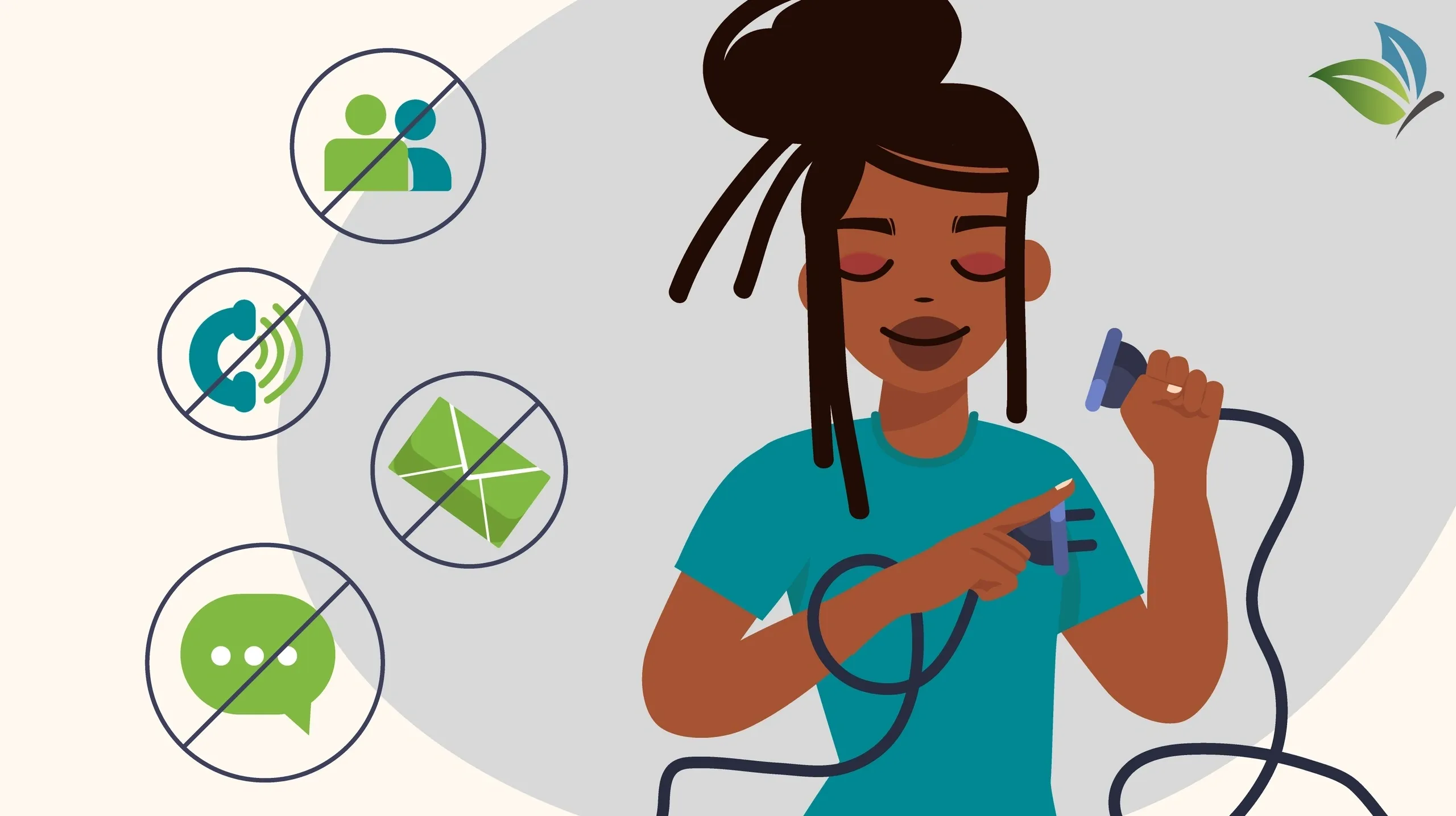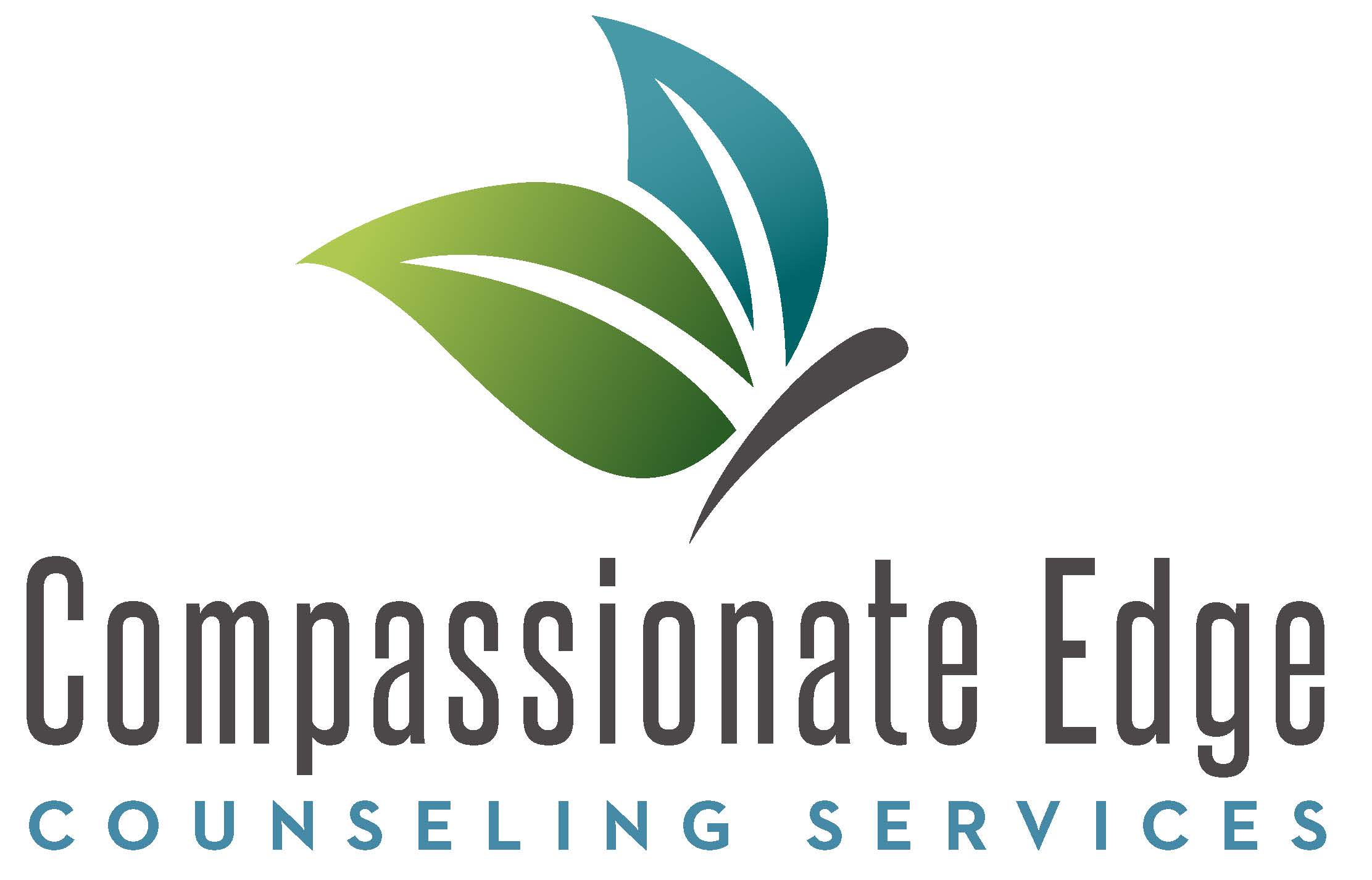
Refuel your mind and body with the same care you give your electronics.
After working diligently for two semesters on my PhD in Psychology, I decided to take an 8-week break. My program runs year-round and this was the only opportunity I would have to rest and recharge before diving back into the work. Initially, feelings of guilt and inadequacy arose as I felt like taking time off would make me appear undisciplined or like a quitter, especially when compared with others who were able to keep up despite having more responsibilities. Upon discussing my feelings about this break with a good friend, they asked: What would you say to a client?
I chuckled, as my friend knows me so well.
With a client, I would first talk about where these feelings and thoughts may be coming from. Then, I would define the meaning of guilt, which involves feeling bad about something you have done or not done, and the meaning of inadequacy, which refers to the feeling that you are not good enough. I needed to do the same process for myself. By being able to identify these emotions and associated cognitions within myself, I was able to more effectively process them, allowing me to recognize how they hinder me from making a decision that would benefit me in the long run – taking a much needed break from the intensity of my classes.
My friend also pointed out that guilt and inadequacy would be the opposite of my intentions for taking a break. I sought to give myself space to recharge and refocus on my work with renewed energy and enthusiasm. With this newfound clarity, I decided to take the 8-week break.
This decision has been liberating; I have no regrets!
I thought about my clients in similar situations and it motivated me to share some thoughts about the importance of unplugging and recharging oneself. Many of us get so caught up in our daily routines and commitments that we forget to take time for ourselves, even if we have paid time off available to us. Everyone deserves an opportunity for rest, relaxation, and respite from job pressures.
In fact, it is essential to recognize when it’s time to disconnect from work and take time off – then do it.
Unfortunately, many of us feel guilty or worry that taking a break will be seen as laziness or lack of commitment. And when we do take time off from work, we sometimes still neglect our own needs in order to please others in our personal lives, or even do work to meet deadlines. This inability to switch off from work or helping others can hinder our ability to truly enjoy our much-needed break and prevent us from fully recharging. Additionally, with so much work needing done at the office, taking time off appears to add more tasks onto our plate, leaving us feeling perpetually behind on everything. We become preoccupied with unresolved work issues and fear of potential crises in our absence, that we become guilt-ridden and overwhelmed with anxiety; the only way we think we can reduce this tension is by working on our day off.
That time off is meant to be time off – not time to catch up on incomplete work.
Once you decide, like I did, to take time off and focus on you to rest and recharge, it helps to have a plan to maximize the benefits of your well-earned time off. I offer these six tips that I myself follow when I take my time to unplug and recharge.
- Be intentional. Take the time to plan out what you want to do with your break.Whether it’s taking a trip, reading a book, going to plays or musical or concerts, spending time with friends or family, enjoying nature, or just sleeping in for an extra hour every morning, make sure that you are doing something meaningful and restorative for yourself. Even if you want to do absolutely nothing for a day, plan it. By intentionally planning ahead for your break, you will ensure that the choices you make will help you reach your desired outcome. If you do not plan your time off, you may find yourself participating in activities that leave you feeling as if you have wasted time, or even worse, work on your time off. Then, you return to work or school feeling just as exhausted and overburdened as before. You may also feel unfulfilled. Use your time how you want!
- Set Boundaries. Protect your plan for yourself by saying no when someone tries to determine your time. Respectfully decline requests if they do not fit into the timeframe – and plan – that has been set aside for yourself. Refrain from taking on additional commitments or tasks during this period, as doing so will only prevent you from getting the rest and relaxation that you need in order to recharge your mind and body. Establish boundaries by clearly communicating with those around you exactly how much of your break is devoted to yourself versus others. Setting boundaries is a way of protecting yourself so that you can fully enjoy your break without feeling overwhelmed or overburdened by someone else’s work. Allow yourself to become comfortable with the uneasiness of declining requests from others in order to prioritize your own needs. Just say no!
- Disconnect. Give yourself permission to unplug from emails, messages, notifications, and other forms of communication during your break so that you can fully enjoy it without distractions or stressors. Before disconnecting, communicate expectations to others and delegate tasks to ensure no one is left wondering if something has happened or if you are ignoring them. Let others know they should not expect replies from you during this period of time. Additionally, provide an estimate for how soon after the end of your break they will receive responses again. Resist the temptation of answering calls or emails during your time off by reminding yourself that someone else can solve any problem or answer a question just as efficiently as you. Remember, you are getting paid to take time off and recharge. Take time off!
- Rest. Make rest a priority in your life, especially while on your carefully planned, disconnected break. When we feel drained, it is often tempting to try and compensate by getting more sleep. However, Saundra Dalton-Smith, M.D. asserts that there are actually seven different types of rest that can’t be fulfilled just by sleeping. These include physical,mental, sensory, creative, emotional, social, and spiritual. She emphasizes the importance of taking time off for yourself in order to achieve all forms of rest and maintain good physical and mental health. AsDr. Dalton-Smith puts it, “Rest is the most underused, chemical-free safe and effective alternative therapy available to us.” Taking time off and allowing yourself to rest is essential for recharging your mind and body. Now, go get some rest!
- Enjoy your time. Allow yourself to enjoy your break without feeling guilty or inadequate – you have permission to do so (even though you don’t need permission). Find and plan activities that bring joy into your life, such as trying out a new hobby, exploring nature by going for walks in the park, attending cultural events like plays or concerts, or spending quality time with friends and family members. Recent research by Meredith Van Vleet, Vicki S. Helgeson, and Cynthia A. Berg indicates that adopting an enthusiastic attitude and engaging in activities with a goal of amusement and fun can help generate high levels of positive affect while providing a momentary reprieve from everyday stressors and responsibilities, thereby reducing overall stress while helping your mind and body feel more rested and recharged.. Make the most of your time off!
- Reevaluate. Once the break is over, reflect on how you spent your time. Evaluating what went well and what could be improved for future breaks can help make your time to rest and recharge even more enjoyable and anticipated. Reflecting on your experiences will provide insight into areas of improvement that can make your next break even more restorative. Taking the time off is essential for reenergizing your mind and body, so it’s important that at the conclusion – and only at the conclusion – you assess the good and the bad of your break. This way, you can make sure each break fulfills your needs and desires. Decide what worked for you!
I know how important it is to rest and recharge. But I forgot, as do we all from time to time. Thankfully, my friend helped me to not only remember, but also to recognize that it was time for me to unplug and recharge my own battery. Just as we know the dangers of letting our electronic devices run out of battery, it is equally important for us to take a break from work or school in order to prevent burnout and maintain good physical and mental health.

